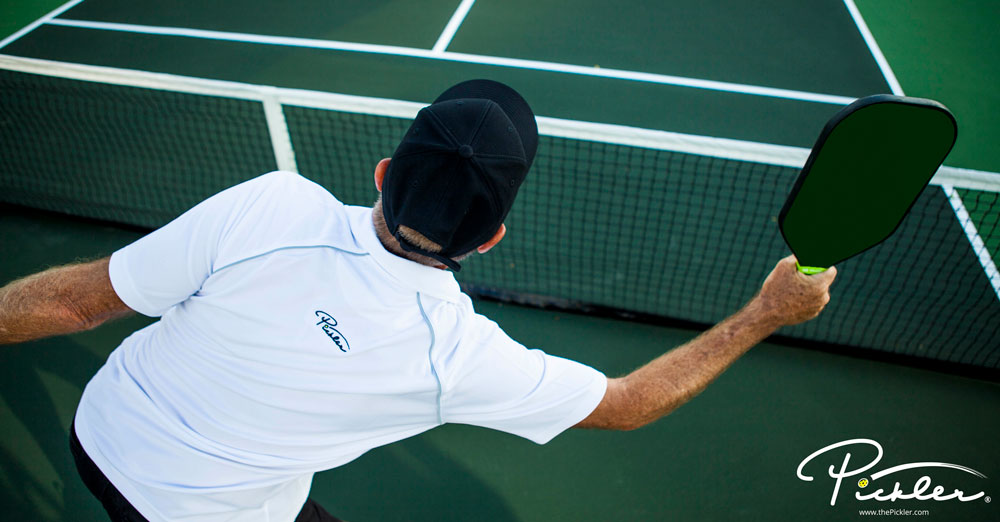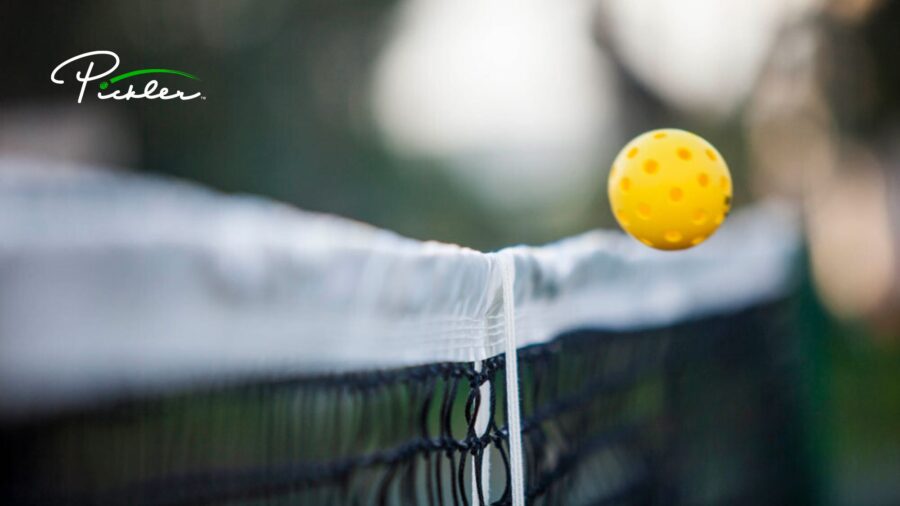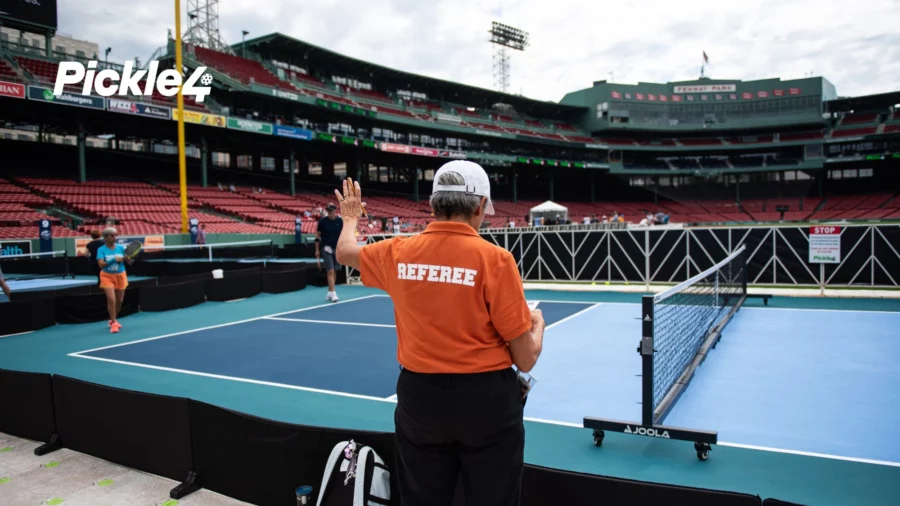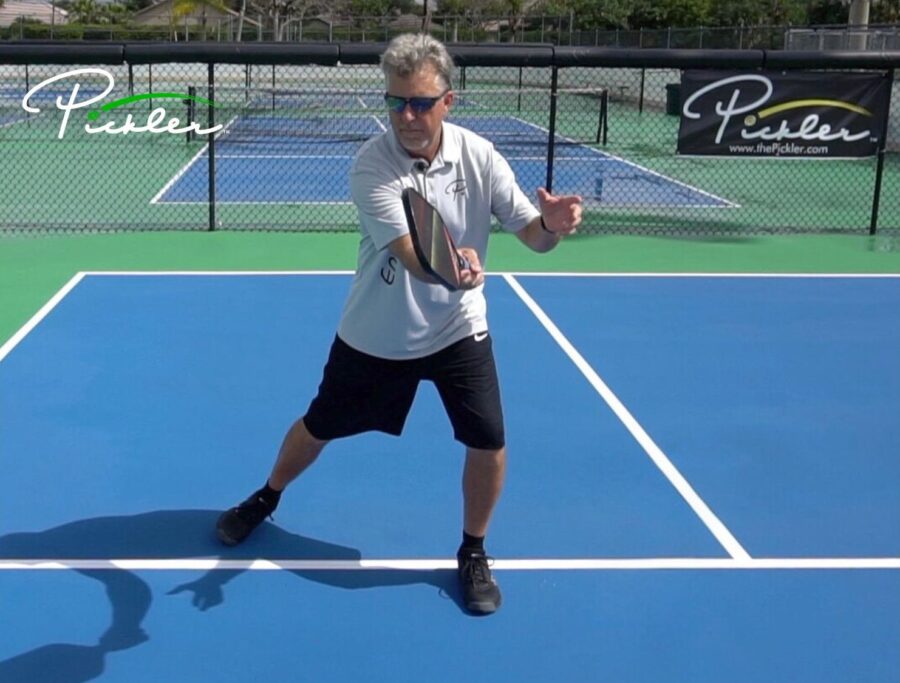By Mark Peifer, USA Pickleball Certified Referee; Past Chairman, USA Pickleball Rules Committee
QUESTION: My opponent hit a ball, and after the shot, they ended up on our side of the net. I didn’t know what to do. Is that legal, and if so, are there any restrictions on them being there? We stopped playing because we considered it a distraction.
ANSWER: As long as your opponent ended up on your side of the net as an immediate continuation of their previous shot, yes, it was legal (Rule 11.I). But only the player who hit the ball can be there, and they have to be on the playing surface, not your court.
Regarding restrictions while on your side of the net, it’s probably worth mentioning a few scenarios to illustrate what can and cannot be done while ‘over there’ on your side. Each of these scenarios assumes the ball is ‘live’:
- First, it’s interesting that there is no rule on how long your opponent can be on your side of the net. The reason is because it’s a self-limiting situation. Their partner is now alone back on their side of the net, playing singles against you and your partner. So, it behooves that player to get back to their side of the net quickly, but they must do it without creating a distraction in the eyes of the referee. Recall that you cannot call the distraction if there is no referee. More on that later.
- If you are in the direct path of the player whose continuation from the shot takes them past the plane of the net and they run into you, it’s a fault on them for touching you. But that does not give you the authority to intentionally get in their way in an attempt to touch them. If you do that, the referee will likely call a fault on you for touching them.
- While your opponent is ‘over there,’ they cannot impede you or your partner from making a play on the ball. If they do, then that would be a fault on them.
- Additionally, while your opponent is ‘over there,’ they cannot play the ball from there. If they do, that would be a fault on them.
All that brings me back to your scenario. Unfortunately, when you stopped playing, the fault was on you. You might have been distracted by their appearance on your side of the net, but they ended up there legally. Distractions can only be called by the player who allegedly committed the distraction fault (Rule 13.D.1.d) and a referee.
We will examine distractions in more detail in an upcoming article.




